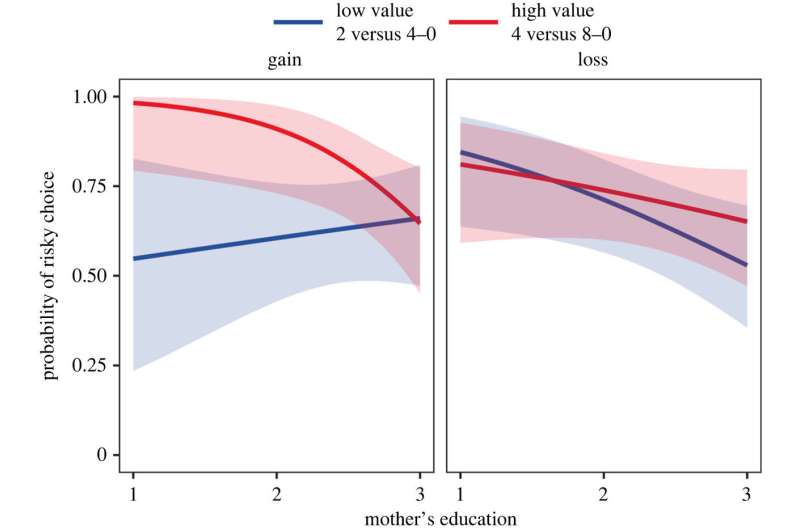September 29, 2022 report
Study shows children of lower economic status more willing to make risky decisions than wealthier children

A pair of researchers at Boston University has found that volunteer children of a lower economic status are more willing to make risky decisions than wealthier children. The results of their study are published in Proceedings of the Royal Society B.
As the researchers note, many evolutionary developmental theories have suggested that the environment in which a person is raised can have an impact on their willingness to take risks to win possible rewards or to avoid losses. Many of the same theories also include assessments of sensitivity and plasticity and, in some cases, offer ways to make predictions about possible general behavioral traits. In this new effort, the researchers sought to test such theories by comparing the willingness to take risks to gain a reward between children living under different economic conditions.
The study recruited 194 children between the ages of 4 and 10 who participated in several risk-aversion experiments. The experiments consisted of trials in which the children chose between taking a risk to gain a reward versus keeping what they were given, or to actually lose some of what they had gained. Such trials involved giving the children a chance to receive a prize at the expense of a possible loss based on the outcome of a spinning arrow attached to a card. Prior to their involvement in the trials, each was rated by the researchers on their economic status based on information provided by parents and assessments made by the children themselves.
The researchers found a pattern—those children with a relatively high economic status were less willing to take risks—both to receive a potential reward or when a possible loss was at stake. The researchers say that their work is the first to show that risk-taking in children can be impacted by their economic situation.
More information: Teresa Harvey et al, Developmental risk sensitivity theory: the effects of socio-economic status on children's risky gain and loss decisions, Proceedings of the Royal Society B: Biological Sciences (2022). DOI: 10.1098/rspb.2022.0712
Journal information: Proceedings of the Royal Society B
© 2022 Science X Network





















